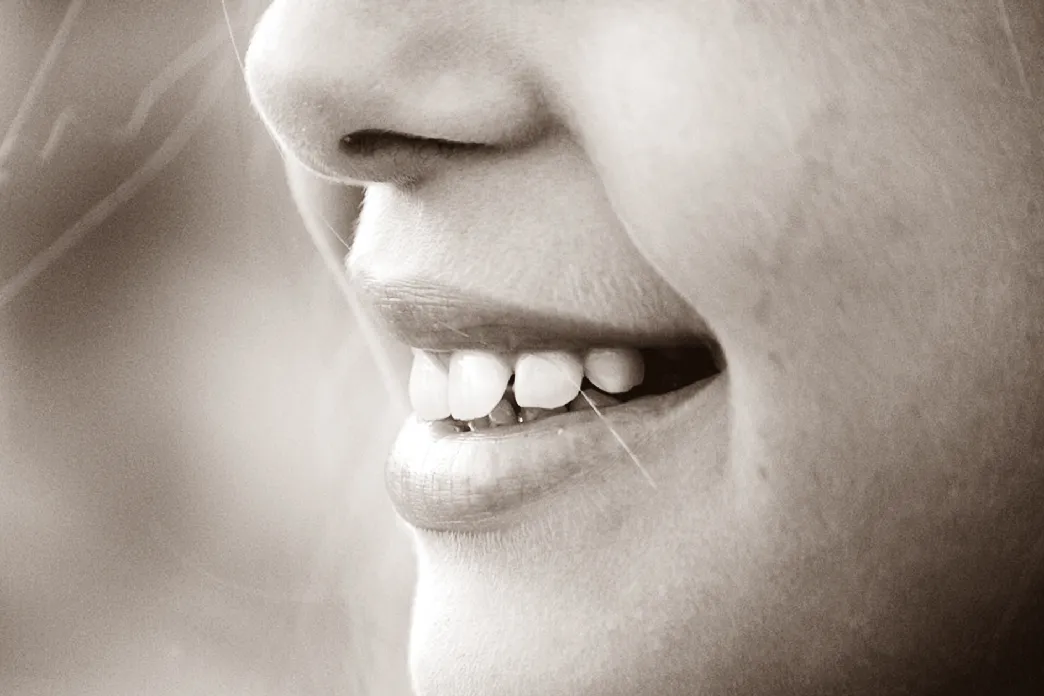nose(鼻)趣谈
2019-01-29程永健
∷程永健
nose和eye、ear都是感觉器官,司嗅觉。由此产生了许多常用的习语。have a nose for表示“擅长发现某事物”,起源于猎狗凭嗅觉能发现某物,例如A good reporter has a nose for news.(好记者善于发现新闻。)nose与动词poke、stick、push及介词into连用,其后接表示物的宾语,表示对某事物好奇、打听、探询,往往提出一些不令人欢迎的问题,如We don’t want any of your interference. You’re a great deal too fond of poking your nose into things that don’t concern you.(我们不要你干涉,你太喜欢打听与你无关的事情了。)与此相反,“不过问、不干预”便是keep one’s nose out of sth.。nose还可以作动词,nose into也有“打听、干预”之意;nose about则是“到处探寻”。此外,nose还可以构成形容词nosy(或nosey),a nosy parker就指“爱打听、爱管闲事的人”。
nose由于在头的前部,before one’s nose便表示前方,如run straightly before my nose指“向我的正前方奔跑”。同样,follow one’s nose也是“朝前方走”,常用来为人指路,但此习语也可指并无目的地信步走去,如I don’t know where I want to go. I’ll just follow my nose and see what happens.(我不知道要去什么地方,只是随便走走看看。)不过,be led by the nose(让人牵着鼻子走)却只有比喻义,指盲从或听命于人,如He lets his wife lead him by the nose.(他听命于妻子。)
under sb.’s nose指在某人面前,汉语一般以“眼”来比喻“就在眼皮底下”,如It is astonishing how one forgets things, even things under one’s nose.(人们忘性之大令人吃惊,甚至就在眼皮底下的东西也会忘记。)此习语也可指“当着某人的面”,如The thief took Mrs.Dake’s pearls right from under her nose.(那小偷居然当着戴克太太的面把她的珍珠偷走了。)也许是由于nose在脸的中部极易受人注意,所以as plain as the nose in your face便表示“显而易见、一清二楚”。西方人鼻子大,英语中却有这样一个有趣的谚语:He that has a great nose thinks everybody is speaking of it. 可见鼻子特别大的人也会产生一种不安的自我意识,老以为别人会议论他,此谚语也指“心里有鬼的人老怀疑别人”,近似“做贼心虚”。
nose与视觉联系构成向前或向下看两类短语,都有比喻义。can’t see beyond one’s nose (or the end of one’s nose)是说向前的视觉界线不出鼻子的范围,相当于“鼠目寸光”,指对自己行动的后果毫无预见,如He’s very careless in his business, and now his company is in trouble—he’s never been able to see beyond the end of his nose.(他做生意粗心大意,现在他的公司有困难了——他从来就目光短浅,不会筹划。)另一习语look down one’s nose(目光朝下),指一种高傲的、不屑一顾的态度,通过at接表人的词语,如She is one of these haughty people who look down their nose at anyone they think their social inferiors.(她是那种傲气十足的人,对她认为的社会地位低的人一律瞧不起。)

用nose表示高傲的习语颇多。如果对事物而言则改用turn up one’s nose at,表示把鼻子翘上天,也是不屑一顾的意思,如When I gave him the present, he turned up his nose at it.(我送他的礼品他看不上眼。)另一习语with one’s nose in the air也同样表示高傲自大、盛气凌人。thumb one’s nose at则是“轻蔑”的一种粗鲁表示,即用拇指顶着鼻尖把手掌扇动,指公然蔑视、拒不顺从,和cock a snook at同义,如Betty thumbed her nose at her mother’s command to stay at home.(贝蒂对她母亲要求她呆在家中的嘱咐不予理会。)
nose也是被打的部位。bite/snap sb.’s nose off出自打架时互咬鼻子,喻指话语尖刻、气势汹汹,如I asked him if he was free in the afternoon, but he bite my nose off.(我问他下午是否有空,他却恶狠狠地回答我。)bloody sb.’s nose意为把某人打得鼻孔流血,喻指因羞辱而伤自尊,从被辱角度说则是get a bloody nose,如I had an argument about politics last night with a friend of mine—he argued very cleverly, and I got a bloody nose.(昨晚我和一个朋友就政治问题进行辩论,他的论点高明,我被他驳倒,感到自惭形秽。)put sb.’s nose out of joint原指把鼻子打破,喻指挫败某人,尤指代替某人得宠,如Gerald was engaged to pretty Polly, which put Ned’s nose out of joint, as he had hoped to marry her.(杰拉尔德和漂亮的波莉订婚了,这使内德大为挫败,他原本希望能和波莉结婚。)rub sb.’s nose in it指老提别人不愉快或做错的事,如I know I let you down badly over the arrangements for the party, but don’t rub my nose in it in front of my friends.(我知道在这次晚会的安排上很对不起你,但你不要当着我朋友的面重提此事让我难堪。)上面的习语都是别人的伤害,如果表示自己给自己伤害,则另有一习语cut off one’s nose to spite one’s face,字面义指对面孔出气而割去鼻子,实指做损人不利己的事,如If you refuse to go to the party that you would really enjoy just because you don’t like one of the guests, you are cutting off your nose to spite your face.(你若因不喜欢其中一个客人而不去参加晚会,那就是放弃去享乐的机会,自己和自己过不去。)
keep one’s nose clean是干该干的事,不惹麻烦,如The boss said Jim could have the job as long as he kept his nose clean and worked hard.(老板对吉姆说只要他不惹麻烦,工作努力,就能保住饭碗。)keep one’s nose to the grindstone指对工作坚持不懈,埋头苦干,如Only by keeping one’s nose to the grindstone can one hope to improve one’s standard of living.(只有坚持不懈地努力工作才能改善生活水平)。have one’s nose in a book指埋头读书,如When I am not gardening I always have my nose in a book.(不干园子的活儿时我便埋头读书。)
nose还可以表示“头”的概念,如count noses指计算到会的人头数。古时有一种nose tax,实为“人头税”。pay through the nose据说与nose tax有关,不纳此税则有割鼻子的危险,所以这一习语指花一大笔钱,如As we needed a car badly and there were very few to be bought, we had to pay through the nose for one when we found it at last.(我们急切地要买一部小汽车,而市场上很难买到,最后找到一部时只好高价购买。)
